- Home
- Brian Lumley
Khai of Khem Page 5
Khai of Khem Read online
Page 5
He argued that the iron sword had not been introduced into the Nile Valley by invaders, but that they had simply re-introduced it. The use of iron in weapons had arisen in Egypt or a bordering land and had spread outwards; the original center had somehow “lost” the art of forging iron; and the iron sword had finally come back again thousands of years later with blood and fire and the black thunder of war.
The pyramids (according to Arnott) were not merely fantastic tombs, but were all examples or inferior copies of an earlier monument long ago destroyed or lost in vast ergs of drifted sand. He had it that the “original” Egyptians—or rather their rulers, Pharaohs of conjectural lineage—had built their pyramids for an entirely different reason, in imitation of something which had stood there in an even older epoch.
And in this last example, Arnott’s themes seemed inescapably to link him with the theosophists, with “sensation seekers,” and with the authors of the current spate of lucrative but wildly speculative and romantic books dealing with primordial incursions from outer space. For he made no bones at all about his belief that indeed the source of Egypt’s ancient wisdom was the stars. The first pyramid had not been built in Egypt at all—it had landed there!
Thinking back on these things as they left the gymnasium complex together, Sommers was brought back to the present when Arnott repeated his earlier question:
“The photograph, Wilf—where did you get it?”
“Hmm? Oh, sorry, my mind was wandering. I took the photograph myself, yesterday, at the museum. I’m on my way back there right now, if you’re interested.”
“If I’m interested, Wilf? Try to stop me coming back with you!”
They walked out of the room together and along the side of the swimming pool. The pool was empty now and Sommers’s voice echoed as he said: “I’ll be glad to have you along. It’s been some time since the Old Man has seen you. But are you entirely free to come and go here? Don’t you have to book yourself out or something?”
“No, I’ve been back at the flat since yesterday morning, but I’m still to report in here daily for my sessions. In another fortnight I’ll have this dammed thing off my neck, and then—”
“Then back to risking that same silly neck hang-gliding, I suppose?”
“You know, Wilf, if they had only known how to go about it, men could have been flying hang-gliders ten thousand years ago. The materials were all at hand—rough and ready, certainly, but available.”
“Is this the start of another Ancient Wisdom theory, Paul?”
Arnott shook his head. “No, but in any case, I think I’m finished with hang-gliding. I’ve thought about it, but—oh, I don’t know. Perhaps the accident soured me. Julie . . . you know.”
Sommers knew. Three months earlier Arnott had been flying at Glenshee in the Grampians. Julie had been a novice pilot. On the day in question Arnott had forbidden her to fly; the winds were blustery, the landing site awkward, the rocks far too sharp. She had waited until he was airborne and had then launched herself after him. He saw her—the way her badly-rigged kite was about to fold up—and he put himself beneath her to break her fall. She killed herself and almost took him with her.
“Paul, I’m sorry,” Sommers said. “I didn’t mean to—”
“Of course not, I know that. But let’s drop it now. . . . About the mask,” he changed the subject. “Where did it come from? How did you get your hands on it?”
“The damnedest thing,” Sommers answered. “It was brought in by an Egyptian!”
“An Egyptian?”
“A fellow who works for a travel agency in Cairo, yes. Apparently he’s a bit of an archeologist in his spare time, a treasure hunter at any rate, and he dug the thing up on a lone expedition to—”
“To the Gilf Kebir!” Arnott finished it for him.
They were just passing out through the hospital’s main doors and into suburban London’s streets. Sommers caught at the other’s arm. “Paul, how did you know that? How could you possibly know?”
“How did I know?” Arnott shook his head, looked dazed. Worriedly, he said: “I . . . it was a guess.”
“A guess?” Sommers’s amazement showed. “Don’t make me laugh. Why, you’d have to be telepathic! I mean, of all the God-forsaken places—”
“I tell you it was a guess!” Arnott snapped, his naturally dark features strangely pale. “As soon as I saw the thing I . . . I thought of it as coming out of Kush.”
“Kush?” Again there was amazement in Sommers’s voice. “But Kush lay south of Egypt, Paul, not to the west!” They crossed the pavement to where Sommers’s car stood at the curb.
“It did in your ancient world, Wilf, but not in mine,” Arnott answered; and again it was as if his eyes shone on distant scenes. “The Kushites did move south later, yes, but originally their land lay to the west of Khem, and its strongholds were in the Gilf Kebir. . . .”
“And of course you have proof of all this?”
“No,” Arnott grinned sheepishly, seeming to come back down to earth. “It’s just another one of my ‘crazy’ theories!”
“You and your theories,” Sommers shook his head and held open the door of his car until Arnott was comfortable inside. He climbed into the driver’s seat and started the engine. Out of the corner of his eye he could see that a worried frown had appeared on the other’s face, that deep lines of concentration furrowed his brow.
“Paul, are you sure you’re well enough to be out of the hospital? I mean, quite apart from your broken neck and busted ribs, you took a bad knock on the head, and—”
“No, I’m fine, Wilf. It’s just that when I saw your photograph . . . it was like . . . I seemed to, well, remember things.”
“Things like Sh’tarra?”
“Sh’tarra? Yes. I saw the likeness to Julie, of course, but the face on that mask—it was the face of Sh’tarra. It was her face.”
“But who is Sh’tarra, Paul, and when did you know her?”
Arnott looked at him, looked through him. He shook his head. “How could I have known her, Wilf? That mask is eight or nine thousand years old. And don’t ask me how I know that, either.”
Somehow he managed a weak laugh. “Blame it on my crazy theories, if you like, Wilf. Why not? Just another of Paul Arnott’s nutty notions. . . .” In another moment, his voice went deadly serious. “But crazy or not, I’ll tell you something. The woman whose face is on that mask, that’s Sh’tarra—and I’ve been waiting for her all my life!”
IV
ARNOTT’S STORY
“Wilf,” said Arnott as the other guided the car out into light traffic, “I’d like to tell you about . . . about myself. Your father already knows most of my story. I once had a drink with him and I loosened up sufficiently to explain a thing or two—a few of my ‘theories,’ a dream or two—things that have been with me as long as I can remember. We talked of this and that and—oh, everything. He draws things out of a man, your father.”
“Yes, Sir George is a wise old man, Paul,” Sommers answered. “He accepts you, and that’s good enough for me. He once told me that I’d do well to listen to you—that I might learn a lot—that you were the oddest collection of contradictions in human form it had ever been his good fortune to encounter. After that . . . you may believe I’ll listen to whatever you have to say.”
Arnott nodded. “Your father flatters me. But I suppose he’s right; I’m sure enough a strange one, and that’s the truth.” He settled himself more comfortably in his seat. “Do you believe in destiny, Wilf?”
“I suppose I do,” Sommers answered. “But it’s for great men, Paul. For kings and generals—not for ordinary men.”
“Oh? It’s funny, but I’ve always felt that destiny was just around the corner for me. Is that strange? Oh, I know I’ve been a wastrel and ne’er-do-well to some, philanderer and fool to others—but ever since I was a small boy, I’ve felt that something was beckoning me. It beckoned and I sought it out. I’ve climbed mountains with the best of the
m, but destiny wasn’t up there. I went with Adrian Argyle to look for old Atlantis in the Aegean. He didn’t discover Atlantis and I didn’t find destiny.”
Sommers smiled. “Wanderlust is the word, Paul. You’re not weird, you’re just restless!”
“Restless? Yes, I suppose I am. I spent a year on a Kibbutz in Israel, two more on Hokkaido learning martial arts from the real experts, and I lived for a good twelve months in a so-called ‘iron-age’ pre-Viking settlement in Norway. Now tell me, if I wasn’t searching for something that couldn’t be found in the ordinary world, then just what the hell was I doing?”
“Getting ready for your clash with destiny, perhaps?” Sommers answered.
“Maybe,” Arnott shrugged. “I’m not sure. I only know that when I was in Japan, it seemed all-important that I should turn myself into a fighting machine; and when we were isolated in that frozen fjord, the only thing that mattered was knowing how to cure skins and forge iron as it was first forged at the beginning of the iron age. But always, as soon as I achieved my aim—” he shrugged again and fell silent for a moment, then continued in a different vein:
“As for sports: when other kids were playing football or splashing around in the swimming pool, I was fooling about with archery and fencing, even medieval jousting! I’ve flown with the birds in a kite-frame of silk and aluminium; and I’ve donned fins and tanks of air to take me down to the bottom of the sea. But in all of these things, always destiny has given me the slip.”
“Yes, you’ve done a good many things, Paul,” Sommers agreed, “and you’ve certainly traveled a great deal, too. But why didn’t you ever try Egypt?”
“Egypt?” Arnott frowned and shrugged again. “Perhaps I’ve been pursuing destiny on the one hand and avoiding it on the other—like a cat chasing its own tail.” For a moment he mused silently, then:
“It’s the one place—the one thing—that I’ve always feared,” he admitted.
“You’re afraid of Egypt?” Sommers laughed. “Now you really have lost me!”
“It’s like a Shangri-la to me, Wilf, a Brigadoon!” Arnott turned in his seat to stare hard at his friend. “I’ve never been there, but I feel that I have. And I feel that my Egypt is still there. Not in this century, no, but in another time, another world. I feel—I’ve always felt—that I’m a sort of stranger here, in this century. And yet I’ve feared to go back, to visit Egypt now, today. I suppose I’m afraid of what I might find there.”
“So you believe that your fancies aren’t just daydreams after all but, well, memories of a sort?” Sommers glanced at him out of the corner of his eye.
“Something like that, yes,” Arnott nodded. “I’m sure that your father guessed as much without ever asking. Of course, I’ve never told anyone else about it. I much prefer to be seen as an eccentric rather than a downright lunatic! But I’ll tell you something: a few of those ideas of mine aren’t nearly so crazy as they’re cracked up to be.”
Sommers knew what he meant. During a recent drought, a chariot wheel had been found in the clay banks of the Blue Nile at Wad Medani. Although it had been in a very poor state of preservation, it could still be seen to be different in construction from other Egyptian wheels. Also, while fragmentary artifacts found in the same clay were plainly bronze age Egyptian or Nubian, the hub of the wheel had been of iron! Iron? In a wheel come down from an era many thousands of years before the Hittites were allegedly the first to forge iron in Asia Minor? How could that be? Or . . . was Arnott right about a prehistoric wheel and a “bronze age” use of iron?
Then again, how could one take the man seriously? What of his rather more esoteric belief in visitors from outer space originating an Ancient Wisdom in pre-dynastic Egypt? Well, even in that area Arnott was not entirely alone in his thinking, though certainly his contemporaries were seen as charlatans and sensationalists. Sommers, for all that he must remain skeptical, could not help but remember an illustration Arnott had once drawn for Sir George. It was simply a picture of the ankh, the Egyptian symbol of generation; but alongside the conventional drawing Paul Arnott had drawn a second ankh, making it to look like something else entirely:
And what of the Egyptians themselves, the popular “Ancient” Egyptians as opposed to that earlier race of Arnott’s convictions? What were the real origins of their belief that the Pharaoh was a “son” of the sun god and his representative on earth? And why did they believe that his body had to be enshrined in a great tomb, a pyramid, in order that he might ascend to the sky to become one with his father?
Why, if one’s imagination were sufficiently fertile, it might almost appear that Arnott’s—
“I’m accused of having been a wild one in my time,” his friend’s voice broke abruptly in on Sommers’s mental wanderings, “and perhaps I have been. But if I was then it sprang from my neverending sense of frustration. Doing the things I’ve done—the dangerous things, the risky things—was my way of escaping, of running from the mundane side of life. Perhaps my mother’s money spoiled me, I don’t know, but it let me do what I wanted to do when I wanted to do it. Then, when I found Julie . . . she was the closest I’ve ever been to that dreamworld of mine, do you see? And yet it wasn’t really Julie at all. It was just the way she looked.”
“Like Sh’tarra, d’you mean?”
“Like Sh’tarra, yes. Like the face on that mask, that funerary mask from olden Kush. I have to see that mask, Wilf, hold it in my hands, feel it! The photograph brought things awake in me, raked over the embers, but I’m sure there are other memories that still lie dormant. I just have this feeling that the moment I lay my hands on that mask again—” And abruptly, he paused.
As the car drew to a halt at the curb outside the museum, the two men turned to stare at each other. They sat there like that, silently, for long moments. Then, with the slightest tremor in his voice, Sommers said what both of them were thinking:
“When you lay your hands on the mask ‘again,’ Paul?”
To which neither one of them had an answer. . . .
V
THE AWAKENING
The museum was a three-storied building standing central in an early Nineteenth Century street. Set back from the street proper, it stood close to the river, which could be seen from its higher windows. Its main entrance was through massive doors at the top of a flight of balustraded steps. Though one of these doors stood open, a sign clearly proclaimed the museum to be closed to the public for the afternoon. The last visitors had already left.
A museum of antiquities, the ground floor was filled with remnants of historic and prehistoric Britain; the first floor concerned itself with Ancient China, Mycenae, Peru, Crete and many other lands; but the second floor, where Sir George had his office and study, was the museum’s center of greatest interest. For that topmost floor was a small corner of Old Egypt, trapped and immobilized here in London, where all the magic of that ancient land was concentrated into an almost tangible essence within four walls of comparatively modern stone.
Climbing the stairs close behind his friend, Arnott said: “Will I get a chance to meet your mysterious Egyptian? I’d certainly like to talk to him.”
“That’s already been arranged,” Sommers answered. “He’s staying in London for the time being.”
“What’s his name?”
“He calls himself Omar Dassam.”
“And the Egyptian authorities simply let him bring the mask out of Egypt and into England? Why did he seek out Sir George?”
Sommers coughed and answered, “He apparently smuggled the thing out! Being employed in the trade—as an agent for one of the big airlines—he had no difficulties. As to why he brought the mask to us—” he shrugged. “He says he ‘guessed’ we were the right ones to approach!”
Arnott frowned. “It all sounds too weird to be true. And what kind of a crazy trick was it to smuggle the thing out in the first place?”
They paused on the second floor landing facing a scaled-down three-dimensional model of Hatshepsut�
��s Temple at Deir el Bahri. Sommers shrugged again. “I know,” he agreed, “it is weird, isn’t it? And I haven’t told you everything.”
The private section of the second floor, where Sommers’s father had his office and study, lay at the west end of the building. Now, as they made their way down aisles of exhibits—between mummy-cases and man-sized models of Ancient Egyptian gods—Arnott asked: “Well, then, tell me the rest.”
“When I came to see you,” Sommers admitted, “it was chiefly to get you to come back here.”
“You succeeded,” said Arnott. “I would go to John-O’-Groats to see that mask.”
“No,” Sommers corrected him, “specifically, I wanted you to meet Omar. He . . . well, in a way, he’s as big a bundle of mysteries as you are. My father will explain.”
They passed through a door bearing the nameplate of Sommers’s eminent father and through his office, then paused at a second door which would open into Sir George’s study. Sommers knocked lightly and a voice from within said, “Come in.”
“Paul,” Sir George smiled, rising from his chair behind a desk that dwarved his slight figure, “I’m delighted you could come.” He extended his hand.
“How are you keeping, sir?” Arnott politely inquired, taking his hand in a firm grasp. “You certainly look well.”
“Oh, I’m well enough, Paul—and all the better for seeing you. Moreover, I’m more than a little excited!” The professor was small, dapper, gray-haired and always nervously alert and full of a boundless energy. At this very moment, he seemed to sparkle with that excitement he had mentioned, and Arnott could only imagine that it had something to do with him.

 Mad Moon of Dreams
Mad Moon of Dreams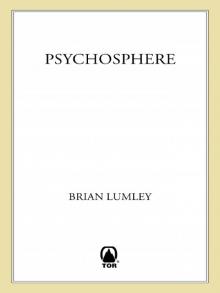 Psychosphere
Psychosphere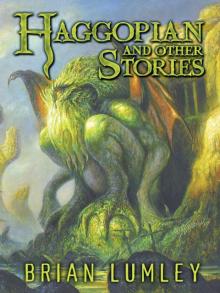 Haggopian and Other Stories
Haggopian and Other Stories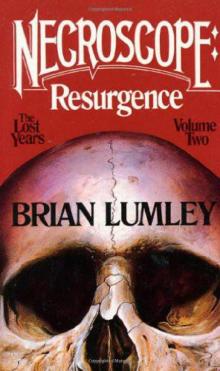 Resurgence_The Lost Years_Volume Two
Resurgence_The Lost Years_Volume Two Necroscope: Harry and the Pirates: And Other Tales From the Lost Years
Necroscope: Harry and the Pirates: And Other Tales From the Lost Years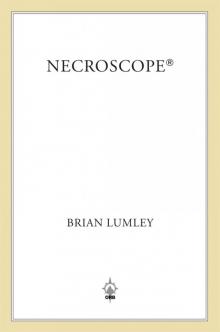 Necroscope®
Necroscope® Dreamlands 5: Questers for Kuranes: Two Tales of Hero and Eldin
Dreamlands 5: Questers for Kuranes: Two Tales of Hero and Eldin The Taint and Other Novellas: Best Mythos Tales Volume 1
The Taint and Other Novellas: Best Mythos Tales Volume 1 Necroscope: Defilers
Necroscope: Defilers Beneath the Moors and Darker Places
Beneath the Moors and Darker Places The Fly-By-Nights
The Fly-By-Nights Khai of Khem
Khai of Khem Ship of Dreams
Ship of Dreams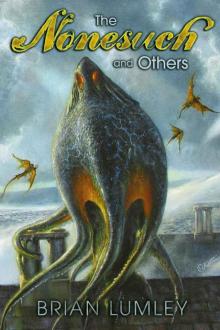 The Nonesuch and Others
The Nonesuch and Others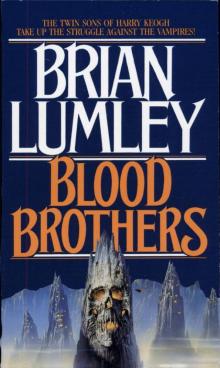 Blood Brothers
Blood Brothers Necroscope
Necroscope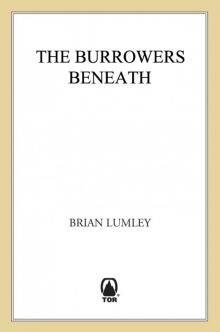 The Burrowers Beneath
The Burrowers Beneath Bloodwars
Bloodwars No Sharks in the Med and Other Stories
No Sharks in the Med and Other Stories The House of Doors - 01
The House of Doors - 01 Screaming Science Fiction
Screaming Science Fiction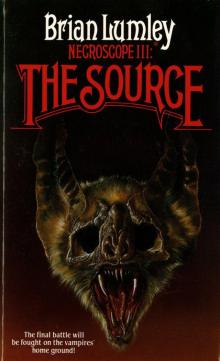 Necroscope III: The Source
Necroscope III: The Source Vampire World I: Blood Brothers
Vampire World I: Blood Brothers Iced on Aran
Iced on Aran Necroscope: Invaders
Necroscope: Invaders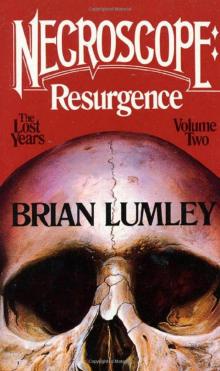 Necroscope: The Lost Years
Necroscope: The Lost Years Return of the Deep Ones: And Other Mythos Tales
Return of the Deep Ones: And Other Mythos Tales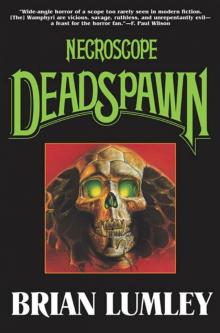 Necroscope V: Deadspawn
Necroscope V: Deadspawn Titus Crow, Volume 3: In the Moons of Borea, Elysia
Titus Crow, Volume 3: In the Moons of Borea, Elysia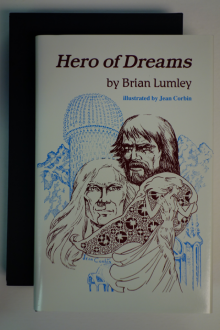 Hero of Dreams
Hero of Dreams Necroscope IV: Deadspeak
Necroscope IV: Deadspeak The Last Aerie
The Last Aerie The Second Wish and Other Exhalations
The Second Wish and Other Exhalations Necroscope: The Touch
Necroscope: The Touch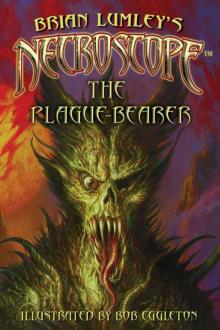 Necroscope: The Plague-Bearer
Necroscope: The Plague-Bearer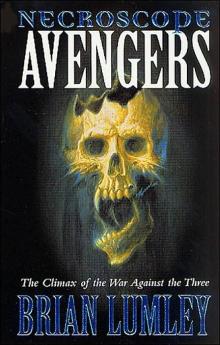 Necroscope: Avengers
Necroscope: Avengers Necroscope II: Wamphyri
Necroscope II: Wamphyri Necroscope II_Vamphyri!
Necroscope II_Vamphyri! A Coven of Vampires
A Coven of Vampires Spawn of the Winds
Spawn of the Winds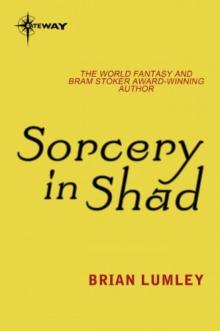 Sorcery in Shad
Sorcery in Shad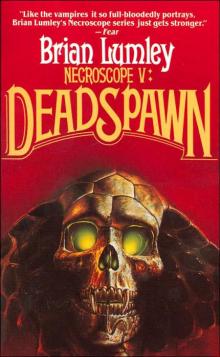 Deadspawn
Deadspawn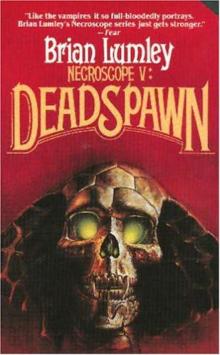 Necroscope V: Deadspawn n-5
Necroscope V: Deadspawn n-5 Necroscope: Invaders e-1
Necroscope: Invaders e-1![Beneath the Moors and Darker Places [SSC] Read online](http://i1.bookreadfree.com/i/03/20/beneath_the_moors_and_darker_places_ssc_preview.jpg) Beneath the Moors and Darker Places [SSC]
Beneath the Moors and Darker Places [SSC]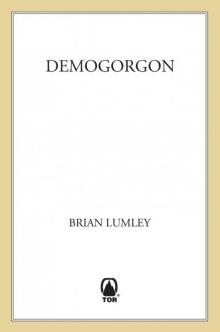 Demogorgon
Demogorgon Harry and the Pirates_and Other Tales from the Lost Years
Harry and the Pirates_and Other Tales from the Lost Years Necroscope IV: Deadspeak n-4
Necroscope IV: Deadspeak n-4 Deadspeak
Deadspeak The Taint and Other Novellas
The Taint and Other Novellas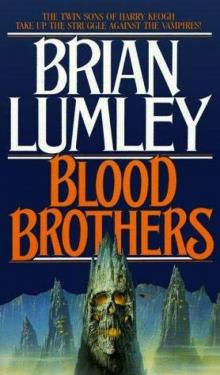 Blood Brothers vw-1
Blood Brothers vw-1 The Source n-3
The Source n-3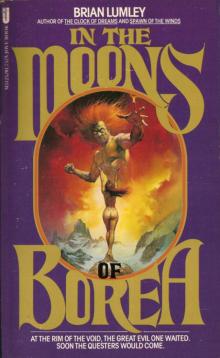 In the Moons of Borea
In the Moons of Borea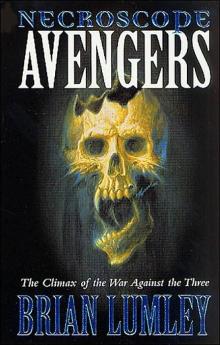 Avengers
Avengers Necroscope n-1
Necroscope n-1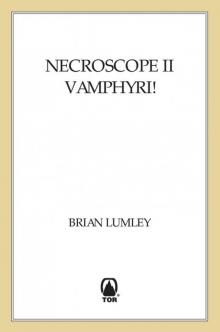 Vamphyri!
Vamphyri! Questers for Kuranes: Two Tales of Hero and Eldin
Questers for Kuranes: Two Tales of Hero and Eldin Necroscope II: Wamphyri! n-2
Necroscope II: Wamphyri! n-2 The Source
The Source Elysia
Elysia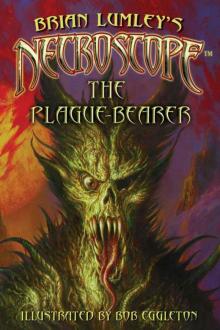 The Plague-Bearer
The Plague-Bearer The Touch
The Touch Invaders
Invaders Necroscope 4: Deadspeak
Necroscope 4: Deadspeak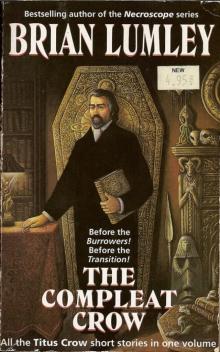 Compleat Crow
Compleat Crow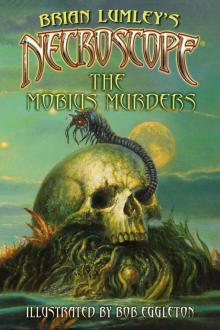 The Mobius Murders
The Mobius Murders Defilers
Defilers